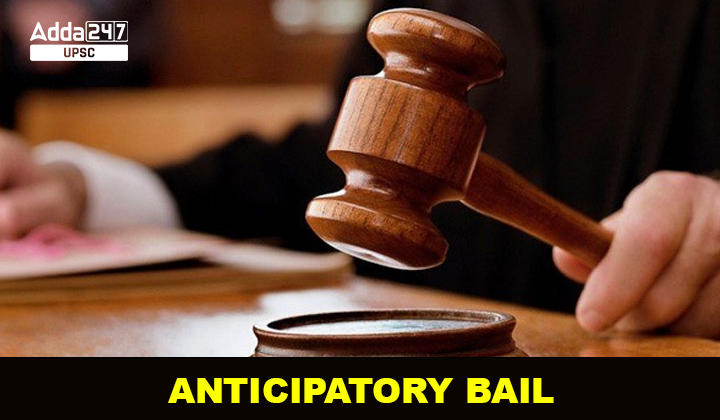Table of Contents
Anticipatory Bails in India: When a person expects to be detained for an offense that is not subject to bail in India, they may apply for a sort of relief called anticipatory bail. Section 438(1) of the Criminal Procedure Code (CrPC), which was added in response to a suggestion by the Law Commission of India, governs it. It’s vital to remember that anticipatory bail can only be requested when the offense cannot be released on bond.
This clause gives people the option to ask the court for protection from being detained and arrested, giving them a chance to arrange for their release beforehand. Individuals who are afraid of being arrested have a legal safety net in the form of anticipatory bail, which enables them to meet the legal requirements for eligibility.
Sections of Anticipatory bails
- Anticipatory bail falls under Section 438(1) of the Criminal Procedure Code (CrPC) in India.
- It was incorporated into the CrPC based on the recommendation of the Law Commission of India.
- Anticipatory bail can be a valuable tool for seeking justice in cases where false charges are levied against the accused.
- The accused is obligated to appear in court as directed when granted anticipatory bail.
- Anticipatory bail is granted only in exceptional circumstances, considering the unique nature of the case.
Anticipatory Bail Cost
The cost of obtaining anticipatory bail can vary, typically ranging from ₹25,000 to ₹30,000, depending on the specific case. Generally, the severity of the case influences the bail amount. To apply for anticipatory bail, the accused must submit an application to the Sessions Court or High Court, where the court will decide whether to accept or reject the bail plea. It is worth noting that the cost of anticipatory bail can also be influenced by the lawyer’s expertise. A skilled and experienced lawyer may assist in securing bail at a lower cost compared to an inexperienced lawyer. The overall cost of anticipatory bail can be influenced by several factors, including the nature of the case and the legal representation involved.
Anticipatory Bail Conditions
- Anticipatory bail is granted by Courts of Session or High Courts.
- The accused must make themselves available for interrogation by the police whenever required.
- The opposing party must be notified about the anticipatory bail application, and they can contest it in the same court.
- The accused must not attempt to influence anyone associated with the case to withhold information from the court or police.
- Prior permission from the High Court or Sessions Court is required before leaving the country.
- Anticipatory bail can only be issued by the High Court or Sessions Court and provides the accused with protection against arrest.
Types of Anticipatory Bail
- Regular Bail: Granted by the Court to release a person already under arrest and in police custody. The application can be filed under Sections 437 and 439 of the CrPC.
- Interim Bail: Temporary bail granted by the Court while the application for Anticipatory Bail or Regular Bail is pending.
- Anticipatory Bail or Pre-arrest Bail: Provision allowing an accused person to seek bail before arrest. Granted under Section 438 of the CrPC by Sessions Court and High Court.
When Can an Anticipatory Bail Get Cancelled?
Anticipatory bail can be canceled if a High Court or Sessions Court issues a directive to the police for the arrest of a person who has been granted bail. This typically occurs when the complainant or prosecution files an application in court that is deemed to have merit. While anticipatory bail allows the applicant to avoid arrest, it is essential for the accused to comply with the rules established by the court.
When seeking anticipatory bail, the applicant must provide full disclosure of all facts, reasons, and events that may lead to their potential arrest in a non-bailable case. The court will inquire about the specific offense(s) and may grant anticipatory bail solely for the relevant case, excluding other cases.
Conclusion
Pre-arrest bail is an important legal clause that protects people’s fundamental rights in India. Prior to being detained for an offense for which bail is not permitted, it enables the accused to request bail. When deciding whether to issue bail, the court carefully weighs various aspects, including the gravity of the offense, the background of the accused, and other pertinent facts.
For the purpose of ensuring a just and impartial process for granting pre-arrest bail, the Supreme Court of India has created guidelines. The court attempts to strike a balance between the defense of individual rights and the interests of justice by taking these elements into account. Thus, pre-arrest bail is crucial in ensuring that people’s rights and freedoms are protected under Indian law.
| Important Article | |
| Bail Provisions under CrPC | The Editorial Analysis- Making Bail Impossible |
| Unlawful Activities | Right To Be Forgotten? |
| Follow US |
| UPSC Govt. Jobs UPSC Current Affairs UPSC Judiciary PCS Download Adda 247 App here to get the latest updates. |



 TSPSC Group 1 Question Paper 2024, Downl...
TSPSC Group 1 Question Paper 2024, Downl...
 TSPSC Group 1 Answer key 2024 Out, Downl...
TSPSC Group 1 Answer key 2024 Out, Downl...
 UPSC Prelims 2024 Question Paper, Downlo...
UPSC Prelims 2024 Question Paper, Downlo...




